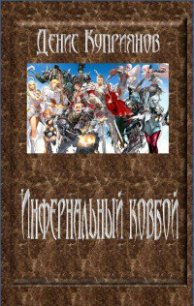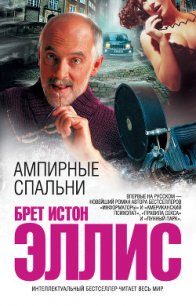His Last Bow - Doyle Arthur Conan (книги бесплатно читать без TXT) 📗
"We have just done so. What were the technical papers?"
"Ah, there's the point! Fortunately, it has not come out. The press would be furious if it did. The papers which this wretched youth had in his pocket were the plans of the Bruce-Partington submarine."
Mycroft Holmes spoke with a solemnity which showed his sense of the importance of the subject. His brother and I sat expectant. "Surely you have heard of it? I thought everyone had heard of it."
"Only as a name."
"Its importance can hardly be exaggerated. It has been the most jealously guarded of all government secrets. You may take it from me that naval warfare becomes impossible within the radius of a Bruce-Partington's operation. Two years ago a very large sum was smuggled through the Estimates and was expended in acquiring a monopoly of the invention. Every effort has been made to keep the secret. The plans, which are exceedingly intricate, comprising some thirty separate patents, each essential to the working of the whole, are kept in an elaborate safe in a confidential office adjoining the arsenal, with burglarproof doors and windows. Under no conceivable circumstances were the plans to be taken from the office. If the chief constructor of the Navy desired to consult them, even he was forced to go to the Woolwich office for the purpose. And yet here we find them in the pocket of a dead junior clerk in the heart of London. From an official point of view it's simply awful."
"But you have recovered them?"
"No, Sherlock, no! That's the pinch. We have not. Ten papers were taken from Woolwich. There were seven in the pocket of Cadogan West. The three most essential are gone – stolen, vanished. You must drop everything, Sherlock. Never mind your usual petty puzzles of the police-court. It's a vital international problem that you have to solve. Why did Cadogan West take the papers, where are the missing ones, how did he die, how came his body where it was found, how can the evil be set right? Find an answer to all these questions, and you will have done good service for your country."
"Why do you not solve it yourself, Mycroft? You can see as far as I."
"Possibly, Sherlock. But it is a question of getting details. Give me your details, and from an armchair I will return you an excellent expert opinion. But to run here and run there, to cross-question railway guards, and lie on my face with a lens to my eye – it is not my mйtier. No, you are the one man who can clear the matter up. If you have a fancy to see your name in the next honors list —"
My friend smiled and shook his head. "I play the game for the game's own sake," said he. "But the problem certainly presents some points of interest, and I shall be very pleased to look into it. Some more facts, please."
"I have jotted down the more essential ones upon this sheet of paper, together with a few addresses which you will find of service. The actual official guardian of the papers is the famous government expert, Sir James Walter, whose decorations and subtitles fill two lines of a book of reference. He has grown gray in the service, is a gentleman, a favored guest in the most exalted houses, and, above all, a man whose patriotism is beyond suspicion. He is one of two who have a key of the safe. I may add that the papers were undoubtedly in the office during working hours on Monday, and that Sir James left for London about three o'clock taking his key with him. He was at the house of Admiral Sinclair at Barclay Square during the whole of the evening when this incident occurred."
"Has the fact been verified?"
"Yes; his brother, Colonel Valentine Walter, has testified to his departure from Woolwich, and Admiral Sinclair to his arrival in London; so Sir James is no longer a direct factor in the problem."
"Who was the other man with a key?"
"The senior clerk and draftsman, Mr. Sidney Johnson. He is a man of forty, married, with five children. He is a silent, morose man, but he has, on the whole, an excellent record in the public service. He is unpopular with his colleagues, but a hard worker. According to his own account, corroborated only by the word of his wife, he was at home the whole of Monday evening after office hours, and his key has never left the watch-chain upon which it hangs."
"Tell us about Cadogan West."
"He has been ten years in the service and has done good work. He has the reputation of being hotheaded and impetuous, but a straight, honest man. We have nothing against him. He was next to Sidney Johnson in the office. His duties brought him into daily, personal contact with the plans. No one else had the handling of them."
"Who locked the plans up that night?"
"Mr. Sidney Johnson, the senior clerk."
"Well, it is surely perfectly clear who took them away. They are actually found upon the person of this junior clerk, Cadogan West. That seems final, does it not?"
"It does, Sherlock, and yet it leaves so much unexplained. In the first place, why did he take them?"
"I presume they were of value?"
"He could have got several thousands for them very easily."
"Can you suggest any possible motive for taking the papers to London except to sell them?"
"No, I cannot."
"Then we must take that as our working hypothesis. Young West took the papers. Now this could only be done by having a false key —"
"Several false keys. He had to open the building and the room."
"He had, then, several false keys. He took the papers to London to sell the secret, intending, no doubt, to have the plans themselves back in the safe next morning before they were missed. While in London on this treasonable mission he met his end."
"How?"
"We will suppose that he was traveling back to Woolwich when he was killed and thrown out of the compartment."
"Aldgate, where the body was found, is considerably past the station for London Bridge, which would be his route to Woolwich."
"Many circumstances could be imagined under which he would pass London Bridge. There was someone in the carriage, for example, with whom he was having an absorbing interview. This interview led to a violent scene in which he lost his life. Possibly he tried to leave the carriage, fell out on the line, and so met his end. The other closed the door. There was a thick fog, and nothing could be seen."
"No better explanation can be given with our present knowledge; and yet consider, Sherlock, how much you leave untouched. We will suppose, for argument's sake, that young Cadogan West had determined to convey these papers to London. He would naturally have made an appointment with the foreign agent and kept his evening clear. Instead of that he took two tickets for the theater, escorted his fiancee halfway there, and then suddenly disappeared."
"A blind," said Lestrade, who had sat listening with some impatience to the conversation.
"A very singular one. That is objection No. 1. Objection No. 2: We will suppose that he reaches London and sees the foreign agent. He must bring back the papers before morning or the loss will be discovered. He took away ten. Only seven were in his pocket. What had become of the other three? He certainly would not leave them of his own free will. Then, again, where is the price of his treason? One would have expected to find a large sum of money in his pocket."
"It seems to me perfectly clear," said Lestrade. "I have no doubt at all as to what occurred. He took the papers to sell them. He saw the agent. They could not agree as to price. He started home again, but the agent went with him. In the train the agent murdered him, took the more essential papers, and threw his body from the carriage. That would account for everything, would it not?"




